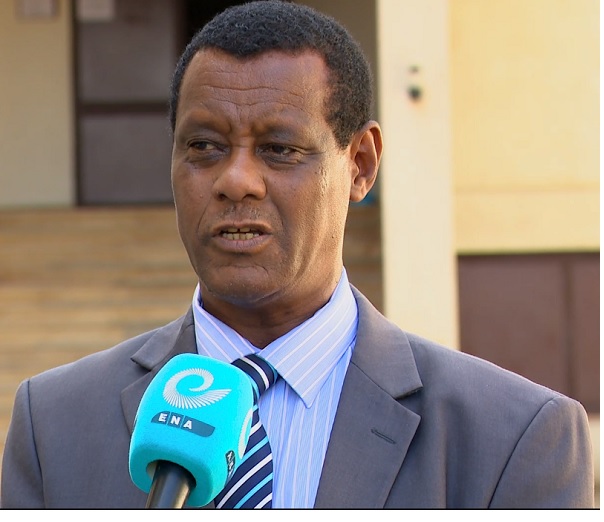Gov't Focused on Climate-Smart Agriculture to Improve Livelihood of Farmers, Say Researchers - ENA English
Gov't Focused on Climate-Smart Agriculture to Improve Livelihood of Farmers, Say Researchers

Addis Ababa January 24/2023/ENA/ Researchers in various institutions said the Government of Ethiopia is giving due attention to climate-smart agriculture to improve the livelihood of smallholder farmers.
In an exclusive interview with ENA, Ethiopian Institute of Agricultural Research (EIAR) Director of Climate and Geospatial Biometrics Research, Girma Mammo, said Ethiopia is the land of contrast in terms of resources, ecology, climate and overall natural resources.
The concept of climate-smart agriculture is not new to Ethiopian farmers and they know it very well, he noted, adding that bringing this potential into full growth has however been difficult due to many reasons.
According to the director, the government has developed a climate-smart agriculture roadmap (2021-2030).Agricultural professional are working with respect to putting this roadmap into practice, he added. “When we go to down to the local level, every region and district have their own resources.
The issue of climate-smart agriculture means putting these local natural resource endowments into full benefit to their highest potential to unlock and use the resources for the benefit of development and improving the livelihood of rural farmers.”

A number of institutions, including farmer-based organizations, are doing their best to really understand the concept and practices of climate-smart agriculture, which is all about moving into modern technologies, including the utilization of indigenous knowledge, Girma elaborated.
Agricultural Transformation Institute Digital Agriculture Rural Financing and Climate Senior Director, Chimdo Anchala, said on his part that it is difficult to transform agriculture unless and otherwise we focus on climate change. Nowadays attention is given to climate change and developing climate-smart technologies that benefit smallholder farmers.
Ethiopia has good policies and strategies for agricultural development when compared to many African countries.“But when we see the digitization and climate aspect, we are a little bit behind many African countries and neighboring countries,” Chimdo stated.
The senior director pointed out that these issues are currently getting attention at high level, starting from the Office of the Prime Minister. “Some of the technologies we have for digitization are already identified and in the process.
We have also established a system with partners one way or another to engage in agriculture and digitization and also in climate. So, we are trying to harness the knowledge, resource we have to really fully implement those best practices or climate smart technologies at ground level.”

Debre Birhan University Shewarobit Research Center Director, Hailu Terefe, observed that the Ethiopian government used to bring technologies and recommendations that are released by research institutes to farmers from top to down.
Some of the technologies failed to adapt the specific environment, Hailu said, adding that it is therefore very important to know specific need of technologies that are really adaptable to specific agro-ecological circumstances.
“It is also very important to involve farmers at the grassroot level because the farmers themselves do have ample knowledge and very rich experience about their environment. So, considering knowledge of the farmers and making the farmers participate in identifying the right technology for their farming system is very important. And nowadays the government is also considering these thing.”